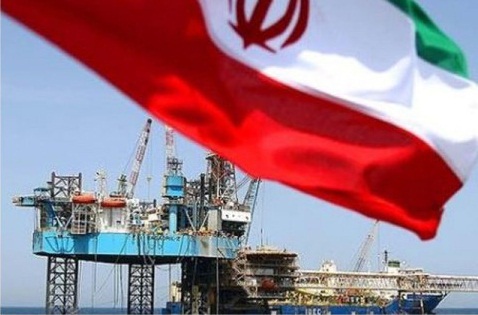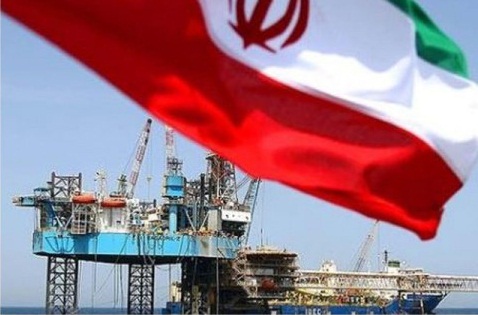
The nuclear deal between Iran and the six world powers have not only created impacted the global political scenario but the world crude oil market as well. Following the historic deal, that essentially began a phase of lifting of sanctions on Iran by the US, the European Union and the United Nations, global oil prices dipped on Wednesday.
Analysts opined that this dip was in preparation by the market to react to the inevitable increase of crude oil supply from Iran in the market following the nuclear deal. The petroleum market is already over supplied and fears that more oil from Iran would saturate the market further.
The sanctions on export of oil, along with a host of other sanctions imposed on Iran, would progressively be lifted off following Tuesday’s deal. In exchange of the lifting of sanctions, Iran would curb its nuclear programmes.
After initial downfall in the oil prices, the market later picked up on Wednesday based on realizations that the exports of oil from Iran would not start until 2016 and there would not be any immediate flooding of the oil market. Brent crude LCOc1 went down 18 cents from its previous settlement, and traded at $58.33 a barrel. U.S. futures CLc1 went down 9 cents to touch $52.96.
Richard Nephew, Programme Director for Economic Statecraft, Sanctions and Energy Markets at the U.S. Centre on Global Energy Policy confirmed that crude oil from Iran would not reach the markets by 2016 and then too, the quantity of oil would not be as overwhelming as is being perceived.
“I estimate (that) 300,000–500,000 new barrels of oil on the market within 6-12 months after a deal begins to be implemented", said Nephew. On the other hand Morgan Stanley put the figure at between 500,000-700,000 barrels per day of new oil supplied to the market by the first half of 2016.
With some of the world’s largest oil fields and reserves, Iran, a member of the Organisation of the Petroleum Exporting Countries (OPEC), exported about a million barrels per day in the last couple of years. Before the sanctions were levied on Iran, the country exported more than about 3 million barrels per day of crude oil.
Analysts have predicted a low price for crude oil in the near future with extreme predictions of a fall in prices. In a statement, Goldman Sachs said that the oil market faces a growing downside risk after 2016 with a greater output of the OPEC producers with the inclusion of Iran.
Goldman, the leading global investment banking, securities and investment management firm, expects oil prices to stabilize around an average of $58 per barrel for Brent in 2015 and be around $62 in 2016. On the other hand the firm predicts US crude oil prices to average out around $52 and $57 per barrel in 2015 and in 2016 respectively.
Investors are also eyeing the economic direction of China which is one of the largest energy consumers of the world and analysts are of the view that any turmoil in the Chinese economy would have a ripple effect on crude prices with expected reduced imports into China.
(Source:www.uk.reuters.com)
Analysts opined that this dip was in preparation by the market to react to the inevitable increase of crude oil supply from Iran in the market following the nuclear deal. The petroleum market is already over supplied and fears that more oil from Iran would saturate the market further.
The sanctions on export of oil, along with a host of other sanctions imposed on Iran, would progressively be lifted off following Tuesday’s deal. In exchange of the lifting of sanctions, Iran would curb its nuclear programmes.
After initial downfall in the oil prices, the market later picked up on Wednesday based on realizations that the exports of oil from Iran would not start until 2016 and there would not be any immediate flooding of the oil market. Brent crude LCOc1 went down 18 cents from its previous settlement, and traded at $58.33 a barrel. U.S. futures CLc1 went down 9 cents to touch $52.96.
Richard Nephew, Programme Director for Economic Statecraft, Sanctions and Energy Markets at the U.S. Centre on Global Energy Policy confirmed that crude oil from Iran would not reach the markets by 2016 and then too, the quantity of oil would not be as overwhelming as is being perceived.
“I estimate (that) 300,000–500,000 new barrels of oil on the market within 6-12 months after a deal begins to be implemented", said Nephew. On the other hand Morgan Stanley put the figure at between 500,000-700,000 barrels per day of new oil supplied to the market by the first half of 2016.
With some of the world’s largest oil fields and reserves, Iran, a member of the Organisation of the Petroleum Exporting Countries (OPEC), exported about a million barrels per day in the last couple of years. Before the sanctions were levied on Iran, the country exported more than about 3 million barrels per day of crude oil.
Analysts have predicted a low price for crude oil in the near future with extreme predictions of a fall in prices. In a statement, Goldman Sachs said that the oil market faces a growing downside risk after 2016 with a greater output of the OPEC producers with the inclusion of Iran.
Goldman, the leading global investment banking, securities and investment management firm, expects oil prices to stabilize around an average of $58 per barrel for Brent in 2015 and be around $62 in 2016. On the other hand the firm predicts US crude oil prices to average out around $52 and $57 per barrel in 2015 and in 2016 respectively.
Investors are also eyeing the economic direction of China which is one of the largest energy consumers of the world and analysts are of the view that any turmoil in the Chinese economy would have a ripple effect on crude prices with expected reduced imports into China.
(Source:www.uk.reuters.com)





